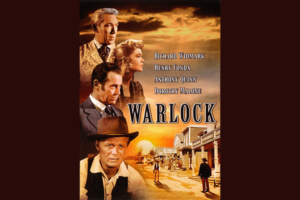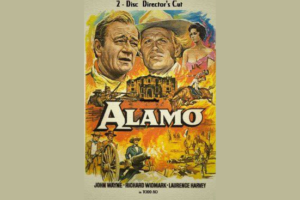
Richard Widmark was born in Minnesota and always had an interest in movies. Like so many, he attends college to become a lawyer but he was derailed by the acting bug. By the late 30s, he was acting in New York. When World War II broke out he tried to enlist but was medically disqualified for an ear problem. Following the war, Widmark went under contract with 20th Century Fox. Darryl F. Zanuck saw Widmark’s screen test for “Tommy Udo” and had him cast in this role for Kiss of Death (1947). After being nominated for Best Supporting Actor in this role, Widmark’s career was ablaze.
Through the 1950s, Widmark covered the major genres: Westerns, military, and thrillers.
He was in a very solid Film-Noir, Panic in the Streets (1950). He also appeared with Marilyn Monroe in Don’t Bother to Knock (1952) and made Pickup on South Street (1953) that same year for director Samuel Fuller. That same year Take the High Ground! (1953) came out where Widmark played the role of a tough combat veteran trying to prepare boys for warfare during 16 weeks of basic training.
A few years later he was in Time Limit (1957) a complex post-Korean War drama that deals with the issue of how much a man should be required to take when in the hands of the enemy.
In 1960, Widmark’s appeared in John Wayne’s The Alamo (1960) as Jim Bowie. Widmark was the political opposite of Wayne so it must have been fun on the set. I can’t wait to review The Alamo (1960) so I can talk about the stuff that Bowie did before he got to Texas.
In 1961, Widmark was the prosecutor in Stanley Kramer’s Judgment at Nuremberg (1961). He appeared alongside Spencer Tracy, Maximilian Schell, Burt Lancaster, Montgomery Clift, and Judy Garland.
A little later, Widmark appeared in two Westerns directed by the great John Ford, with co-star James Stewart in Two Rode Together (1961) and as the top star in Ford’s apology for Native American mistreatment, Cheyenne Autumn (1964).
1965, found Widmark teamed with Sidney Poiter in The Bedford Incident (1965). Widmark was a gung-ho naval captain that pushed his men to the limits and beyond.
In the 1970s he continued in movies but also in television. Although his star power peaked around Judgement at Nuremberg, Widmark would work for 30 more years in movies such as Against All Odds (1984).










Leave a Reply
Your email is safe with us.